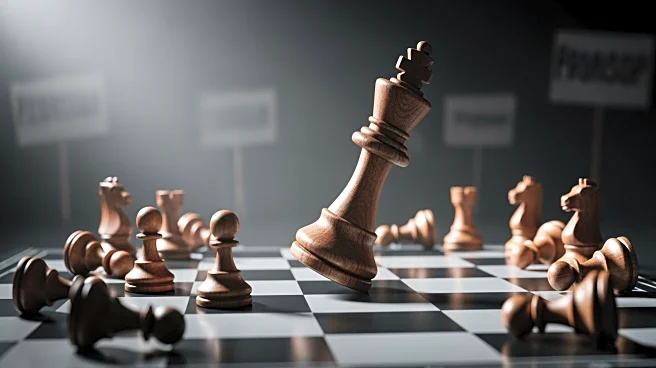What's Happening?
Madagascar has experienced a military coup, resulting in the ousting of President Andry Rajoelina. The coup follows weeks of protests led by young citizens frustrated with water and power outages, high living costs, and government corruption. The protests,
organized under the banner 'Gen Z Madagascar,' gained significant traction online. The situation escalated when an elite military unit joined the protesters, leading to the military's takeover. Colonel Michael Randrianirina has emerged as the coup leader, asserting control over the armed forces and announcing a military council to govern for 18 months before new elections.
Why It's Important?
The coup in Madagascar represents a significant shift in the political landscape of the island nation, with potential implications for regional stability. The involvement of the military in civilian protests highlights the deep-seated dissatisfaction with the current government and could inspire similar movements in other countries facing governance challenges. The transition to military rule may affect Madagascar's international relations, particularly with countries advocating for democratic governance. The situation also underscores the power of social media in mobilizing political change.
What's Next?
Colonel Randrianirina is set to be sworn in as president, marking the official start of military governance. The international community may respond with calls for a return to democratic processes, potentially influencing Madagascar's foreign aid and diplomatic relations. The military council's promise of elections in 18 months will be closely monitored by both domestic and international observers, who will be assessing the legitimacy and fairness of the proposed electoral process.
Beyond the Headlines
The coup raises ethical questions about the role of the military in civilian governance and the use of force in political transitions. It also highlights the challenges faced by young populations in developing countries, who are increasingly using digital platforms to demand change. The situation in Madagascar may serve as a case study for the impact of social media on political movements and the potential for military involvement in civilian protests.
















